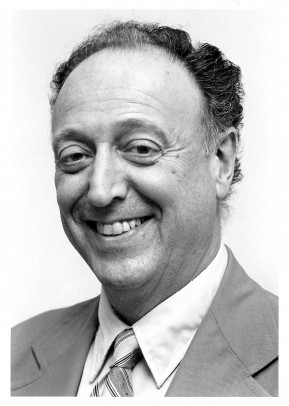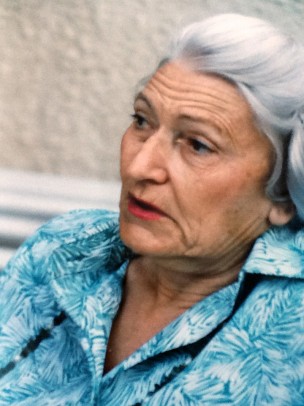Deaths: Jacob Brody, Marie-Odile Sweetser
Jacob Brody, public health
Jacob A. Brody, 82, dean of the School of Public Health from 1985 to 1992, died April 22 in Chicago.
Brody was a physician, researcher, epidemiologist and administrator for the U.S. Public Health Service and the National Institutes of Health. His government service included a year in Hiroshima as research coordinator for the Atomic Bomb Casualty Commission.
Under his leadership, the School of Public Health doubled in size and increased its research funding 700 percent while building programs in HIV/AIDS, health disparities and aging populations.
Brody’s research interests included measles and rubella vaccines, neurodegenerative diseases, the relationship between alcohol and chronic diseases, and the epidemiology of health and disease in aging populations.
“He presided over the school at a critical juncture, overseeing a dramatic expansion of research efforts on some of the most critical public health issues,” said Paul Brandt-Rauf, the school’s current dean.
“He basically laid the sound foundation for the school’s current trajectory of growth that we are still reaping the benefits of today.”
Brody began his government service in 1957. His posts included two years in Panama as medical officer of the NIH’s Laboratory of Tropical Virology, Middle America Research Unit; six months in Russia as an exchange scientist to the Institute of Poliomyelitis and Virus Encephalitis; and three years in Alaska as chief of the U.S. Public Health Service’s epidemiology section at the Arctic Health Research Center.
He held several positions at the NIH in Bethesda and Rockville, Maryland, including chief of the epidemiology branch collaborative and field research for the National Institute of Neurological Diseases and Stroke; chief of the epidemiological and special studies branch of the National Institute on Alcohol Abuse and Alcoholism; and associate director for epidemiology in the demography and biometry program of the National Institute on Aging.
Brody received the Public Health Service’s Distinguished Service Medal in 1981 and the Abraham Lilienfeld Award in 2000 for outstanding contributions, leadership and research in epidemiology. He authored more than 250 scientific publications.
“Jacob’s public health career spanned an amazing array of disciplines. His research contributions were important and his impact extended beyond the elegant studies he performed to the creation of U.S. government programs in neurology, alcoholism, and aging,” said Ronald Hershow, associate professor of epidemiology and director of epidemiology and biostatistics.
“We have lost a public health giant and a great friend.”
Brody was a member of the American Public Health Association and former president of the American Epidemiology Society.
In a 2008 interview, Brody said, “Being remembered for having contributed to the development of the field of epidemiology and creating and enabling many epidemiologists is something I cherish.”
Brody was born in Brooklyn, New York, and graduated cum laude from Williams College in 1952. He received his MD from State University of New York Downstate College of Medicine.
In prep school he excelled at track, and he remained a track and field enthusiast throughout his life. He also enjoyed scuba diving, photography, poetry and audio books.
A memorial service will be held May 4, noon, at the University Club of Chicago.
Donations can be made in his memory to the UIC School of Public Health, Office of Advancement, 1603 W. Taylor St. MC 923, Chicago, IL 60613 or to Horizon Hospice.
Marie-Odile Sweetser, professor emerita of French
Marie-Odile Sweetser, 88, professor emerita of French, died April 6 in Lake Bluff.
Sweetser, a native of France, was a leading scholar of 17th century French literature and culture, stylistics, literary criticism and classical tradition in French literature.
She arrived at UIC as an associate professor in 1969 with her late husband, Franklin Sweetser, who was professor of French until his retirement in 1991. She previously taught at City University of New York.
Known for her publications focused on playwright Pierre Corneille and poet Jean de La Fontaine, she produced many studies on other key figures.
“Her contribution to the scholarship of what is now often called ‘The Early Modern’ is vast and insightful, extending to a broad range of themes, genres and authors,” said Christine Probes, professor of French literature at the University of South Florida, a professional and personal friend.
In the volume Les Femmes au Grand Siècle, a collection Probes co-edited in 2003, she authored a dedication to Sweetser.
“If the sound of her voice and lovely laugh are like sweet music, her elegant style of writing combines a rare grace with magisterial scholarship. Indeed, her excellent personal qualities are legion and complement her professional ones, the most remarkable perhaps being her generosity toward her colleagues,” Probes wrote.
At UIC, Sweetser took a great interest in the library collection for the French department and donated many materials, even in areas outside of her specialty.
“Her knowledge was broad enough that she knew the major figures and topics in French literatures from the time France became a separate nation to contemporary works just a few years ago,” said John Cullars, associate professor and bibliographer for the humanities who worked closely with Sweetser.
He considered Sweetser a “second-to-none” scholar and resource whose cultural interests went beyond French subjects to concerts and frequent trips to the latest exhibits at the Art Institute.
“She wasn’t one of these distinguished people who are prickly and supercilious as many can be,” said Cullars, a long-time friend of the Sweetsers. “She seemed genuinely interested in helping other people.”
After retiring in February 1997 as professor emerita, Sweetser remained academically active and a sought-after conference speaker until about three years ago.
The department of French and Francophone studies established the Marie-Odile Sweetser Prize for excellence in French studies. Since 2005, it has been awarded annually to an outstanding graduating senior majoring in French.
Sweetser emigrated to the U.S. in 1949, four years after receiving a bachelor’s degree from the University of Nancy in France. She earned a master’s degree from Bryn Mawr College and a Ph.D. from the University of Pennsylvania.
Contributions in support of the Sweetser Prize may be sent to the Marie-Odile Sweetser Fund, University of Illinois Foundation, 1305 W. Green St., MC 386, Urbana, IL, 60181.
A private memorial service will take place during the summer.


